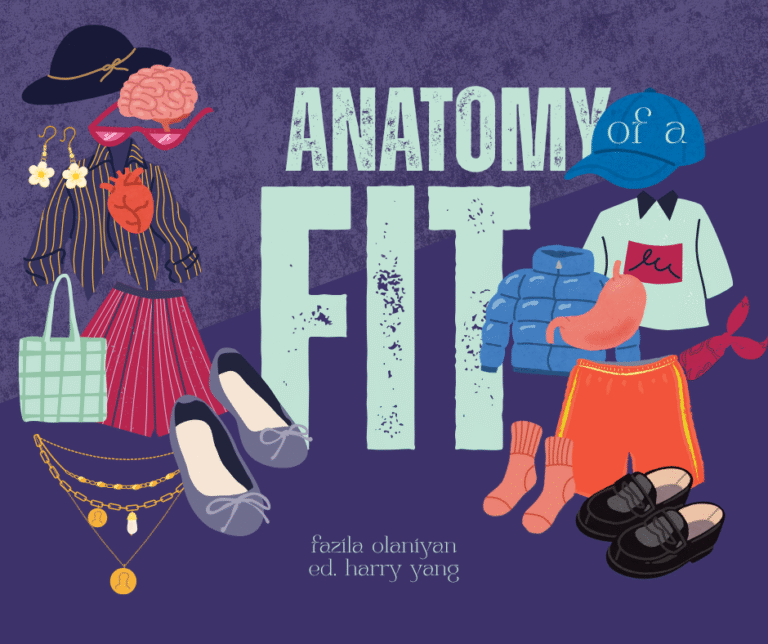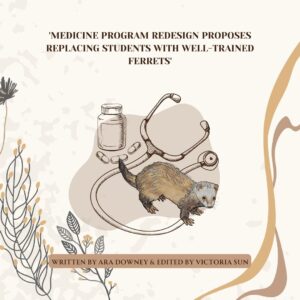
by JUMAANA ABDU, MASHAAL HAMAYUN & KEERTI PAIDA
As females, we are often given conflicting advice regarding maternity, motherhood and medicine. It can be difficult to figure out what’s right for you, and perhaps there is no right answer. In an effort to shed some clarity on the situation, we sat down with four doctors from different specialties to discuss their experiences and thoughts on motherhood in medicine, from the ‘best’ time to have children, discrimination and finding that sought-after balance.
Read the responses given by Dr Bernadette Prentice, paediatrician and PhD candidate; Dr Ash, medical oncologist and PhD candidate; Dr Rola Akra, resident; and Dr Nipu Jayatilleke, general surgeon.
When do you think is the best time during the different phases of medical training, from medical school to consultant, to have a child?
Bernadette: When the time is right for you and your partner!
Ash: Different medical parents have different stories, but with the same happy ending. I had my first as soon as I received my letters. This gave me independence to work as a locum, sustain a non-lab based PhD, but most importantly, have flexibility in looking after a little one. Whenever I hear the comment “they grow up so fast”, I can’t relate, because I enjoyed so many moments and never felt time fly by. I think I just felt very relaxed as a happy new mum, knowing mandatory training requirements were done and dusted.
Rola: In hindsight: probably during medical school. I have a friend who had 3 children during medical school. She decided to take a year off prior to starting work. However, I myself thought the best time would be during internship and residency. A quote that has resonated with me: ‘you can have it all, but not all necessary at the same time’ and that’s something I’m content with.
Nipu: I always wanted two children and knew I loved kids. So, I picked an arbitrary number (35) based on my minimal obstetric knowledge, counted backwards from 35 and created a life plan for myself. I finished FRACS by 30, finished post graduate fellowship and masters by 32 and had two children then. I didn’t have a biological clock ticking – I had my own clock of logic.
In making this plan, I did a “meta-analysis” if you will. I asked GPs, oncologists, cardiologists – every specialty all over the hospital (because there aren’t many people in surgery that you can ask). The overwhelming response is: there is no good time! The best advice I got on parenting is: you will never get your kid’s first year of life back. One year in your career? That’s nothing.
Do you think current policies regarding maternity leave are supportive? What changes are required?
Ash: I was met with full support from supervisors, funding sources and the university when I embarked on a PhD as a new mother. There are more options to accommodate parenthood when doing higher degrees, compared with basic or advanced training, where it seems every day taken off for maternity leave results in longer lists of boxes to tick, upon return to work. This can be very tough if you do not already feel secure within a training network. But having your children earlier means you get to love them for longer! We all get there in the end. It takes persistence and patience, and acceptance of why mandatory core and non-core requirements exist, for future independent clinical practice.I do believe the culture is changing, and that there is conscious effort to reconcile expected standards with trainees’ wellbeing and needs. Employers should come to expect pregnancies in doctors of child-bearing age, celebrate if they hear the news and execute Plan B.
Nipu: I think we [RACS] have come a really long way. Our policies are some of the most progressive (even more so than OB/GYN and psychiatry) however while policy may be useful, culture is ultimately what drives experiences. Something that I’ve recently been working on is breast-feeding rooms being available to surgeons/trainees. A 10min break in theatre toilet, pump balanced between knees, trying to eat lunch, while the anaesthetist is putting the next patient to sleep is difficult to say the least.
There is an element of ignorance surrounding mothers in surgery. A lot of the supports I received during my training were from surgeons who were active fathers – who had seen their wives experience similar obstacles. Bringing the idea of motherhood out of the zone of just mothers but to the parents in surgery is important.
Bernadette: One concern I have for access of maternity leave relates to 12-month trainee contracts (still an issue for subspecialty training). Despite uninterrupted public hospital service some women cannot access leave entitlements because they have changed job networks/states. Also, our GP colleagues and trainees do not have any paid maternity leave work agreements (in contrast to hospital doctors) so clearly that needs to be addressed.
I also believe that “maternity leave” should actually be called “parental leave” to highlight the fact that either/both parents may choose to take time off and that this option is recognised and supported.
Last year a report came out that female doctors were asked about their family plans during interviews for specialist advanced trainee jobs in NSW. Have you experienced discrimination in the workforce on the basis of your motherhood?
Ash: No, but I may be one of the lucky ones. I was asked about family plans during an informal advanced training pre-meeting, but did not feel discriminated. It was asked in a positive light by doctors who I know to genuinely adore parenthood. Having babies was ‘highly encouraged’ which had a profound effect on me, because it made me feel like I had chosen the right specialty. It may well have been a diplomatic way in which my future supervisors planned ahead. That’s fine by me.
The one and only time I felt like I was close to being discriminated against was when an acquaintance (who hadn’t known me very long) asked me about a research project and asked me “Now that you’re pregnant, does that mean the work will just sit there forever and never get done?” I thought about that for a while, wondering why that pre-conception exists, and then I stopped. Ultimately, we are free to choose what or whom to spend our energy on!
Rola: I’ve been attending BPT pre-meet interviews and it wasn’t an issue except at one hospital where they don’t offer 3 year contracts for BPT. I wouldn’t be able to take maternity leave, as physician training programs only allow a maximum of 8 weeks leave a year.
Bernadette: I am aware of colleagues still being asked about family plans. However, I have not personally experienced any discrimination. I was once heavily pregnant and despite the panel being made aware that I would be on maternity leave for 9 months of the potential 12-month contract I still got the position. I think the fact that there are more women working in paediatrics makes maternity leave more of a reality.
Nipu: Wow! What a loaded question. Yes, I have experienced discrimination, but something to remember is that there are nuances. I’ve had everything from very inappropriate questions about “balance” and “family” and choosing something “family friendly”. Early on, I remember a consultant remarking on a registrar back from her third round of maternity leave: “Can you believe she had a third child” in paediatrics of all specialties!
Then during the next 5 years, the most common questions rose to the surface:
“Are you sure you want to choose this?”
“General surgery is really tough for women!”
“Are you sure you don’t want to do something more family friendly like ophthalmology?”
The hypocrisy of being asked these questions by senior consultants on their 3rd or 4th marriages, with 5-6 kids really struck me. My rural term marked a flash point. I was asked this question once again, I decided to speak up – I asked: “You’ve got 6 kids, how has it been for you?”
After completing my training and my first pregnancy, people changed their tune but only a little. During my pregnancies there was the shock-horror regarding my maternity leave. I now got a different set of questions:
“Are you sure you want to take the full year off? So-and-so only took 3 months.”
“You can remember how to do this, right?”
“You know if you have another child, it’s not going to help your career”
Getting asked these questions to my face was particularly surprising and difficult to come to terms with. I also think over time these questions take their toll as they build up to an imposter syndrome. I found myself questioning if surgery was really for me at all.
There’s a perception that doctors prefer relationships with doctors. If you have a partner, what profession do they work in? Has this made your work easier?
Bernadette: My partner works in finance and despite not being a doctor is extremely supportive and my greatest champion. I think it is more important to marry someone supportive of your chosen pathway and career. I often wonder how couples who are both training/ sitting exams/ being seconded/undertaking shift work make it work!
Nipu: I didn’t intentionally marry an architect (haha!) but it turned out well – one of us has normal hours. We’ve been together through university, my training program and life in between. When I got RFACS he was probably more relieved than I was!
Our marriage is an equal partnership and we have mutual respect for each other and careers. During the first pregnancy, he set up his own architecture practise. After my year of maternity leave he took time off and became a full-time dad and part time architect. Come second child, he built up the architect practise, turned full time and established it enough to run itself. It peeves me a little when people say “you’re so lucky!” – I guess it’s a little mystifying when colleagues in my generation don’t share responsibilities equally.
Rola: My husband is an investment banker. My interests in a partner were more based on friendship, respect, and communication, not necessarily common career interests.
Ash: As doctors, we spend majority of our formative working years invariably surrounded by other health professionals, with common phenotypes! My husband is non-medical, and I try never to take that, or him, for granted. He is a terrific person, who has enriched my professional and personal life. His superb paternal instincts prevent me from over-medicalising our son’s maladies whenever a daycare bug hits our son. His background in health management and health law gives me informed insights of how we deliver care. He has more non-medical friends than I, and while I dearly love my wonderful friends in medicine, our non-medical friends gives lots of refreshing perspective to my social life. I find this especially important in preventing compassion fatigue and nihilism.
Finally, as we know, the stakes are high in clinical practice and research. The work is absorbing, so much so there is a risk of becoming self-absorbed, at significant cost. It is critical to have support close by, but outside of the medical environment: those who know and respect you, knows of life and resources on the outside, and can help in many healthy, human ways.
As a parent, how do you maintain balance between career and family? Do you every struggle with the emotional toll work may take at home?
Bernadette: Balance can be tricky. Sometimes you will need to focus more on work and other times you focus more on family. It doesn’t have to be one choice at only one time. Don’t forget to care for your own health and wellbeing and that may mean finding time or hobbies outside of medicine. Share your home duties with your partner and hire help when required. At different times we’ve had an au pair to help with childcare, cleaners, meal delivery service etc. whatever works for you. The emotional toll of work for doctors can be extreme. Find a mentor or colleague you can trust and debrief when work gets difficult. Most importantly, ask for help when you need it.
Rola: I’ve completed 5 out of 6 years of university married to my husband and now having worked internship and residency, and currently pregnant, I can’t say I allowed work to control my family life. They’re two very separate things in my opinion.
Ash: Switching off from work is an ongoing issue, especially in the field of Medical Oncology, and although we all know what we should do, it is hard. Every day I feel privileged to be employed to look after patients, but every day I try hard to compartmentalise. Achieving clarity with sleep, exercise and days off for a holiday / artistic interests have helped me the most, personally.
I think you need to identify what places the biggest emotional toll on you. If it is a difficult patient or family encounter, it is important to debrief. If it is a difficult colleague, there are processes to look at in which to escalate and seek support. If it is the pure work burden, it may require some re-organisation of daily duties, time management and hacks. This will ensure when you’re on your commute home, you have completed things by priority and you can now focus on the fact that you’re going home. Breaking down volumes of work into smaller tasks has helped me a lot.
Sometimes it’s not easy to pin down the problem. Are you struggling to sleep because you’re thinking about your terminal patient who is the same age as you? Are you dreading the 7:30 ward meeting tomorrow because a colleague has a pattern of making you feel like a failure? Are you finding you are becoming more and more irritable at work? It is vital to recognise when a problem is pathological, and how to start looking for the resources to fix it. As doctors, we may instinctively view any human encounter as another page on our shift, another request for service, another bite into your time and energy. We’re trained to give help, but we’re not skilled in asking for it. It’s important to take the opportunity with any encounter with colleagues, family or friends, to simply start talking.
Nipu: Something I’d like to note is that my ‘balance’ should be no more or no less important than my male counterpart. Being a surgeon is the best thing I ever did, but my greatest achievement is my two children and I don’t think anyone should have to compromise surgery for this. I am the future of surgery. I am the consultant that you are going to train with. Don’t ever think there isn’t a space in surgery for someone like me.
Responses have been edited for length and clarity












































































































